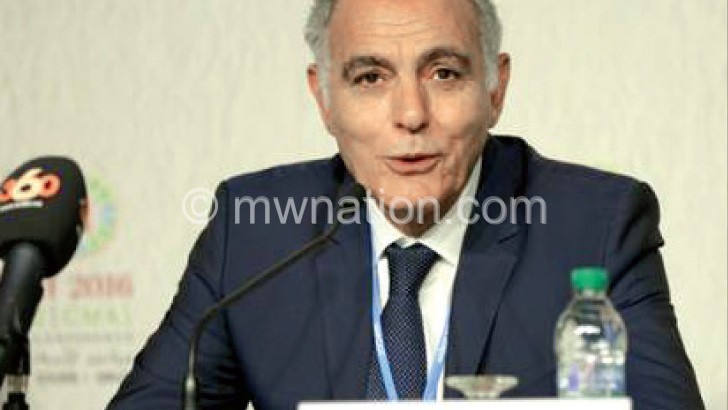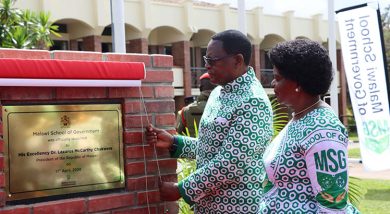Report exposes Malawi’s vulnerability to climate change
As more than 190 countries are meeting in Marrakech, Morocco, for the United Nations (UN) Climate Change Conference, a new report on Global Climate Risk Index 2017 has reconfirmed that less developed countries such as Malawi are generally more affected than industrialised countries.
The report by the Germanwatch says the index may serve as a red flag for already existing vulnerability that may further increase in regions where extreme events will become more frequent or more severe due to climate change.
The report is titled ‘Who suffers most from extreme weather events? Weather-related loss events in 2015 and 1996 to 2015’.

The Global Climate Risk Index 2017 analyses to what extent countries have been affected by the impacts of weather-related loss events (storms, floods, heat waves etc.). The most recent data available – from 2015 and 1996–2015 – were taken into account.
The countries affected most in 2015 were Mozambique, Dominican Republic and Malawi. For the period from 1996 to 2015, Honduras, Myanmar and Haiti rank highest.
“In the past year, African countries have been heavily struck by weather catastrophes. Mozambique and Malawi, ranking first and third in the annual index for 2015, were hit by severe floods as a result of serious rainfall which started in December 2014 and lasted through to the end of January 2015 and beyond,” reads the report. “Nearly one million people have been affected in both countries; more than 200 000 people had to leave their homes.”
The climate summit in Marrakesh is giving the “go-ahead” on developing the “rule-book” for the Paris Agreement, including the global adaptation goal, adaptation communication systems, and finance assessment systems for building resilience.
A review on the work of United Nations Framework on Climate Change (UNFCCC) on loss and damage provides the opportunity to better detail the next 5-year’s work on loss and damage, in relation to the climate regime, as well as to better understand exactly how loss and damage should be taken up under the Paris Agreement.
Meanwhile, Malawi on Thursday made a presentation on the operationalisation of country projects financed by the Green Climate Fund and the way forward.
In global climate finance design, the Green Climate Fund plays a role in channelling new financial resources to tackle the pressing adaptation and mitigation needs of developing countries. The Green Climate Fund has raised USD 10.3 billion equivalent in pledges from 43 State governments as of October 2016.
The session explored examples of adaptation and mitigation projects recently approved by the Green Climate Fund (GCF). The session also discussed best practices on project design and formulation and ways to move forward.
Head of climate change and research at the Department of Climate Change and Meteorological Services Fred Kossam made the presentation on the $12.3 million six-year project.
With the project, government will be able to address the whole range of early warning systems from Hydro met observation, understanding Malawi’s risks, Hydrological forecasting and preparedness as well as dissemination of the messages. n





